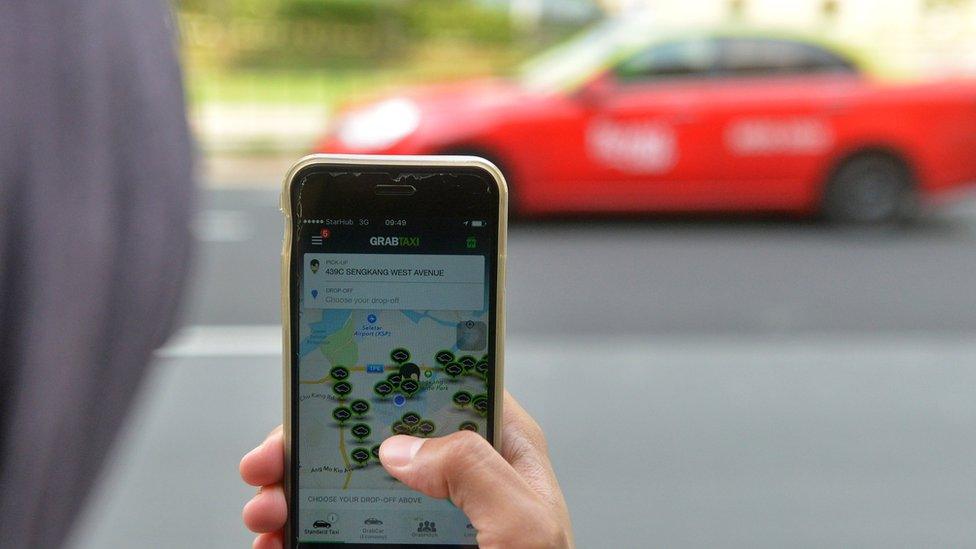Ride-hailing apps hacked to increase fares in Singapore
- Published

The problem has led Grab to offer rewards of up to $1,000 for information on their use
Some drivers on popular ride-hailing apps in Singapore have been caught hacking or using modified versions of the apps to increase passenger fares and their earnings.
The New Paper website, external said it had found "a thriving online community dedicated to hacking and modifying these apps".
It also found some people offering their services to drivers who didn't know how to do so themselves, saying that one advertisement charged 200 and 350 Singapore dollars ($146 and $256, £117 and £205) a month for Gojek and Grab, two of the many ride-hailing services available in Singapore.
New Paper journalist David Sun told The Straits Times, external that one way such modifications or hacks worked was to enable drivers to not accept rides, or to cancel them, without being penalised.
This means that drivers could collude in not accepting fares in specific areas, an action which drives up fare prices, which are based on passenger demand. Drivers then accept passenger requests at the more expensive rates.
You might also like:
In addition to the higher costs to passengers, Sun said such apps also posed security and privacy risks.
"It's not just consumers who are affected, even the Grab drivers who use such apps have put themselves at risk," he said. "I'm buying a modded app off somebody who has hacked it, I don't know what's going on in the back end. There could be malicious code there that could be taking my data."
Singapore is considering regulating private-hire fares, external and forcing ride-hailing companies to make clear how they set their fares, especially during peak-hour "surge pricing".
Grab and Gojek did not reveal the number of drivers who have been caught using such apps, but both companies said they were aware of such practices and would not hesitate to penalise drivers who did.
Reporting by Tse Yin Lee
Next story: Russian street art covered with asphalt 'by mistake'
Use #NewsfromElsewhere to stay up-to-date with our reports via Twitter, external.